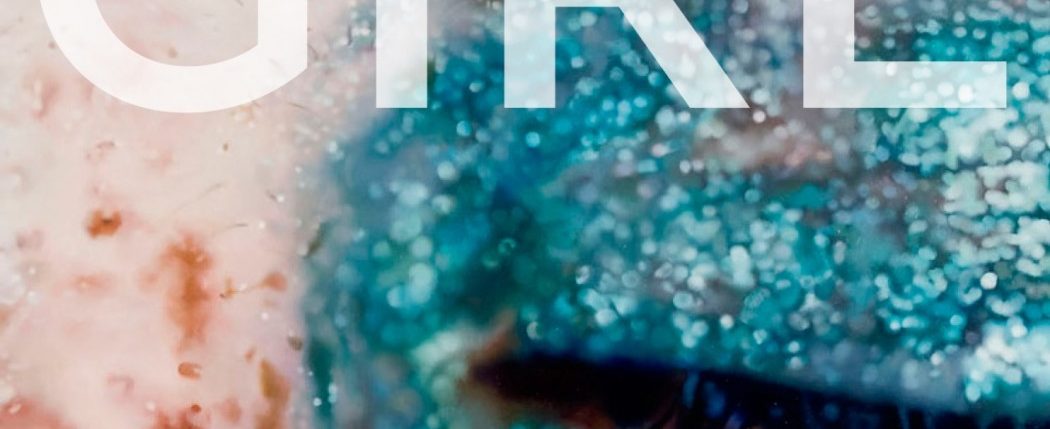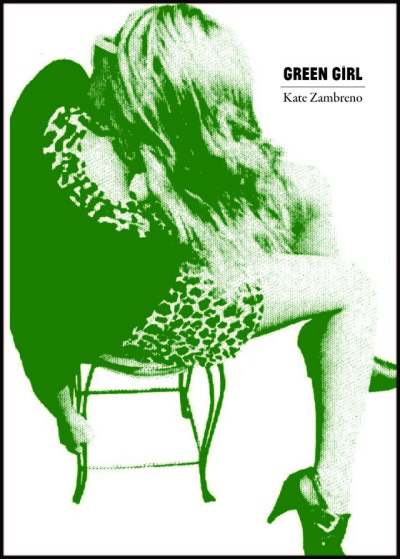
Banned Books Week Spotlight: Green Girl – Kate Zambreno
Danielle Dorky spotlights Kate Zambreno’s feminist novel Green Girl in honor of Banned Books Week.
September 27th through October 3rd is Banned Books Week, an annual celebration of our freedom to read and an opportunity to draw attention to the issue of censorship. I was surprised to find out that 311 books were challenged in the year 2014, meaning that they were reported as inappropriate to be shelved in bookstores, libraries, or schools. One of the most challenged books of 2014 happens to be The Bluest Eye by Toni Morrison, which I read during my freshman year of high school. The novel deeply affected me on a personal level and changed the way I regarded literature. I hate the idea of any person being denied the opportunity to read such moving fiction, and could think of no better way to draw attention to this issue than with a blog spotlighting a similarly controversial novel.
Kate Zambreno’s Green Girl was first published by a small press in 2011, and then, following its largely positive reception, a revised version containing previously unpublished scenes, an interview with the author, and an additional essay was published through Harper Perennial in 2014.
Green Girl is a reference from Shakespeare’s Hamlet, a phrase used by Polonius to describe his melancholic daughter Ophelia. “You speak like a green girl,” he accuses her. In this instance, green is used to depict naivete and gullibility. Though Zambreno’s Green Girl Ruth often comes off as both, most of all she is numb, and the reader is never sure whether her naivete is genuine or an affectation used to better cope with the world. An American living in London and working at the department store “Horrid’s,” Ruth pedals a fragrance called Desire and observes the world as harshly as she observes herself.
Even the photograph featured on the book’s cover appears irritated and raw, as Ruth is often portrayed. It is a magnified shot of a partial eyelid decorated in teal glitter, and freckles that appear red and inflamed, as though laying all of Ruth’s blemishes bare before you’ve turned the first page. Throughout the novel, the viewpoint volleys between an omniscient third person and intrusive first person plural narrator. The first-person narrator is a maternal figure, assumed to be Ruth’s dead mother, and her attitude towards her daughter and green girls in general shifts from sympathetic to disgusted to occasional objectification, at one point remarking on Ruth’s “perfect French breasts.”
I first saw Green Girl mentioned in Roxane Gay’s essay collection Bad Feminist, where she discusses what makes a female protagonist unlikable and the paradox of seeking outside validation while at the same time being repulsed by the orchestrated dance women are expected to play. With that in mind, I pulled five quotes from the novel that summarize Ruth’s frustration, a frustration all green girls can relate to.
“The agony of becoming. This is what she experiences. The young girl. She would like to be someone, anyone else. She wants, vaguely, to be something more than she is. But she does not know what that is, or how one goes about doing such a thing.”
“She feels all this pressure, like she is supposed to be born again into this world, and I’m bearing down on her, and nothing is coming out yet. Not even her violence, which she swallows inside. She senses this world infected with godlessness and emptiness and hollowness. She senses the despair. She would like to run down the street naked and screaming, but she can’t. It would be terribly impolite and improper.”
“She is curious to see what will happen, a gaper’s block of self. She is the voyeur of herself. She is willing, a willing victim. If not wanting then willing although she is wanting she has a hole a void and perhaps he has what she needs to fill it.”
“But she would almost rather not go. It was too much effort. To look passable. To look pretty enough. To make sure all the seams lined up and everything matched and she looked as much the her in her mind’s eye as she possibly could. She did not know even who she was dressing up for. So much effort to go through to smile smugly at her mirror reflection. Saying, yes, this is you on your best day.”
“Oh these green girls do they have reverence for anything expect the fragility of their own pendulum of mood?”
What’s your favorite banned book? To find out more about Banned Books Week, click here.
Categories: Reviews


